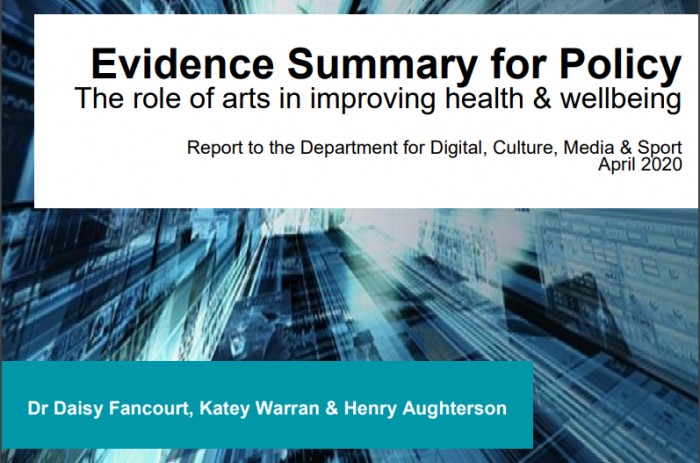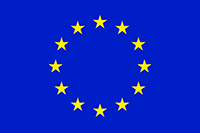New scientific evidence to support art policy for health and wellbeing
In recent years, the relationship between culture and health has experienced a growing political interest thanks to the converging evidence of the new frontiers of scientific research and the results of good practices.
The Department for Digital, Culture, Media & Sport (DCMS) of UK Government commissioned the report “Evidence summary for policy: The role of arts in improving health and wellbeing” in response to the World Health Organisation report published in November 2019. The review was authored by Dr Daisy Fancourt, Katey Warran and Henry Aughterson, from University College London.
The WHO report synthesised the findings from over 3,500 studies on the role of the arts in the prevention of ill health, promotion of health, and management and treatment of illness across the lifespan. The reviewed evidence included study designs such as randomised controlled studies, nationally-representative longitudinal cohort studies, communitywide ethnographies, cross-sectional surveys, laboratory experiments, and case studies. The WHO report also made a series of policy suggestions to countries globally.
Building on the findings from the WHO report, the evidence summary aims to:
- Review the evidence on how arts engagement can impact on the following three DCMS policy-relevant outcomes: (i) social outcomes, (ii) youth development, and (iii) the prevention of mental and physical illness.
- Review the evidence on how social prescribing programmes that have used arts interventions can impact on the three outcomes above, again reviewing the types of studies and quality of the evidence base.
- Provide a series of recommendations for how DCMS might invest in future research or academic collaboration to build the evidence base on interventions impacting on these three outcomes.
The study considers the quality, consistency, generalizability, potential impact and applicability of the evidence base for each particular outcome, interpreting grades of recommendation concerning the development of policy (A= body of evidence can be trusted to guide policy and practice; B= body of evidence can generally be trusted to guide policy and practice in most situations; C= body of evidence provides some early-stage support for developing recommendation(s) for policy or practice, but caution should be taken in its application; D= body of evidence is weak and is not recommended for developing recommendations for policy or practice at present).
The findings show strong evidence for, just to name a few, the use of music to support infant social development and the use of the arts to reduce the physical decline in older age, suggesting that this evidence can be trusted to guide policy.
The findings are summarised in the table below.
|
Grade A |
Grade B |
Grade C and D |
|
The use of music to support infant social development |
The use of the arts (other than reading) to support child social development |
The use of the arts to reduce social inequalities |
|
The use of book reading to support child social development |
The use of the arts to support wellbeing in children and young people |
The use of the arts to improve educational attainment |
|
The use of music or reading for speech and language development amongst infants and children |
The use of the arts to support cognition in older age |
The use of the arts to manage or treat mental illness (e.g. depression and anxiety) in children and young people |
|
The use of the arts to support aspects of social cohesion |
|
The use of the arts to prevent mental illness (e.g. depression and anxiety) in adults |
|
The use of the arts to improve wellbeing (i.e. positive psychological factors) in adults |
|
The use of the arts to prevent further cognitive decline in adults with cognitive impairments |
|
The use of the arts to reduce physical decline in older age |
|
The use of the arts to reduce non-communicable disease incidence |
For more information about the evidence summary.
Image copyright: © Department for Digital, Culture, Media & Sport, 2020.


